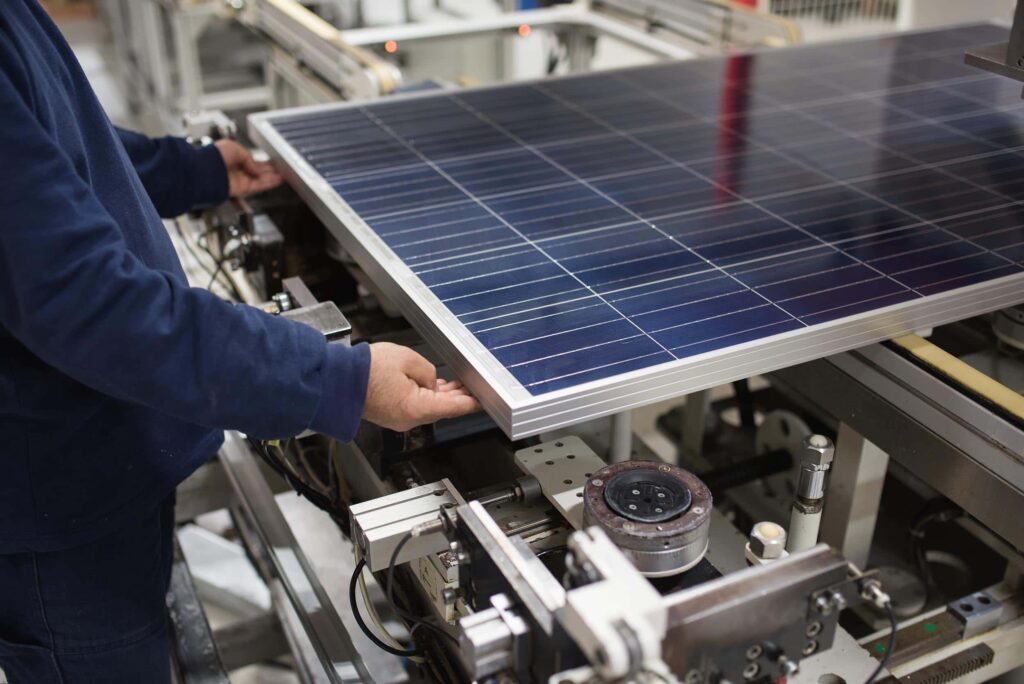The manufacturing of solar panels involves several key processes, from the production of solar cells to the assembly of the final modules. While different manufacturers may employ variations in their specific processes, the following steps outline the general manufacturing process of solar panels.
- Silicon Ingot Production: The process begins with the production of silicon ingots, which involves the purification of raw silicon, often derived from quartz. The purified silicon is melted and then cooled to form solid ingots.
- Silicon Wafer Production: The silicon ingots are sliced into thin wafers using a wire saw or other cutting techniques. These wafers are then further processed and refined to enhance their conductivity and reduce impurities.
- Solar Cell Fabrication: The silicon wafers are processed through steps such as doping, texturing, and metallization to create solar cells. Doping introduces impurities to create a semiconductor junction, while texturing helps reduce reflection and improve light absorption. Metallization involves applying metal contacts to facilitate the flow of electricity.
- Solar Cell Testing and Sorting: The fabricated solar cells undergo rigorous testing to ensure their quality and efficiency. Cells are sorted based on their electrical output and other parameters to group similar cells together for the assembly process.
- Module Assembly: Solar cells are interconnected and encapsulated to form a photovoltaic module. The cells are often arranged in a specific pattern, typically in series and parallel connections, to achieve the desired voltage and current output. The interconnected cells are then laminated between a front glass cover and a backsheet using encapsulant materials, such as ethylene-vinyl acetate (EVA), to provide protection from environmental factors.
- Module Testing and Quality Control: Once assembled, the solar modules undergo comprehensive testing to assess their electrical performance, durability, and reliability. Quality control measures are implemented to identify any defects or issues that may affect the overall performance of the modules.
Throughout these processes, manufacturers adhere to strict quality control standards and industry regulations to ensure the production of high-performance and durable solar panels. Furthermore, advancements in manufacturing technologies continue to improve the efficiency and cost-effectiveness of solar panel production.


